Items
Search full-text
“Australia Council releases its first Disability Action Plan”
-
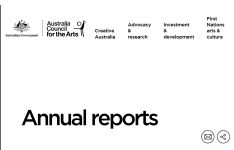 "Australia Council - Annual Report 2020-21" Australia Council - Annual Report 2020-21 - reads, in part "• We awarded two new prestigious National Arts and Disability Awards on the International Day of People with Disability in December 2020, to Emily Crockford and Gaelle Mellis. The Council partnered with Arts Access Australia (AAA) on our 2020 Arts and Disability Awards supporting the Arts Access Australia’s National Leadership Award to recipient Abbie Madden.", and "Research underway includes analysis of data from the Australian Consortium for Social and Political Research Incorporated (ACSPRI) national study on social inequality, analysis of access and equity in the online sphere and an Australian Research Council (ARC) Linkage Partnership exploring the evolution of Disability Arts in Australia."
"Australia Council - Annual Report 2020-21" Australia Council - Annual Report 2020-21 - reads, in part "• We awarded two new prestigious National Arts and Disability Awards on the International Day of People with Disability in December 2020, to Emily Crockford and Gaelle Mellis. The Council partnered with Arts Access Australia (AAA) on our 2020 Arts and Disability Awards supporting the Arts Access Australia’s National Leadership Award to recipient Abbie Madden.", and "Research underway includes analysis of data from the Australian Consortium for Social and Political Research Incorporated (ACSPRI) national study on social inequality, analysis of access and equity in the online sphere and an Australian Research Council (ARC) Linkage Partnership exploring the evolution of Disability Arts in Australia." - Carriageworks
- Paul Hodges
- "Bree Hadley (2017) Disability theatre in Australia: a survey and a sector ecology. Research in Drama Education, 22(3), pp. 305-324.”
-
“National Arts and Disability Strategy is launched in 2009” In 2009, the National Arts and Disability Strategy was agreed on by Australian Cultural Minister’s Council. The strategy sought to improve access and participation in the arts and identified four priority areas: barriers to access and participation, supporting the creative practice of artists with disability, developing audiences for disability arts practice, and strengthening policy and planning within governments.
-
“Activism leads to a Disability Royal Commission” Decades of activism led to a 2019 Senate motion calling for a Disability Royal Commission. The first public hearing of the Royal Commission took place on 16th September, 2019 at Brisbane’s Convention and Exhibition Centre. The Commission resulted in a report in 12 volumes. Several volumes include Volume 3: Nature and extent of violence, abuse, neglect and exploitation, Volume 6: Enabling autonomy and access, Volume 7: Inclusive education, employment and housing, Volume 9: First Nations people with disability, and Volume 10: Disability services. Overall, the Commission presented “222 recommendations on how to improve laws, policies, structures and practices to ensure a more inclusive and just society that supports the independence of people with disability and their right to live free from violence, abuse, neglect and exploitation.” In 2023, the final report of the Royal Commission into Violence, Abuse, Neglect and Exploitation of People with Disability was published with 220 recommendations for a more inclusive nation to reduce exploitation, violence, abuse and neglect of people with disabilities.
-
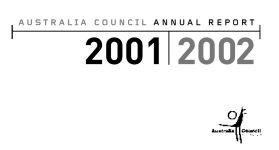 "Australia Council - Annual Report 2001-02" Australia Council Annual Report 2001-2002 - discusses letter from chair of council, corporate overview, year in review, financial statements, analysis of funding and grants for projects, initiatives, new work, programs, presentation and promotions including funding for implementing the Commonwealth Disability Strategy by evaluating current and changing needs of people with disabilities in the arts sector and reflecting this in funding and policies, arts marketing and audience development and triennial grants to disability arts organisations in NSW, South Australia and Victoria as well as an image from Crossroad Arts for the exhibition “Shades of White” and the publication “Making the Journey”
"Australia Council - Annual Report 2001-02" Australia Council Annual Report 2001-2002 - discusses letter from chair of council, corporate overview, year in review, financial statements, analysis of funding and grants for projects, initiatives, new work, programs, presentation and promotions including funding for implementing the Commonwealth Disability Strategy by evaluating current and changing needs of people with disabilities in the arts sector and reflecting this in funding and policies, arts marketing and audience development and triennial grants to disability arts organisations in NSW, South Australia and Victoria as well as an image from Crossroad Arts for the exhibition “Shades of White” and the publication “Making the Journey” -
“Women With Disabilities Australia (WWDA) recognised as an independent organisation in 1995” Women With Disabilities Australia (WWDA) gained seed funding from the government in 1994 and was recognised as an independent organisation in 1995. The organisation shares a history with Disabled People’s International (Australia) (established 1983) and its National Women’s Network (established 1985).
-
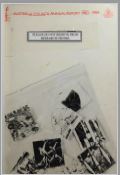 "Australia Council - Annual Report 1983-84" Australia Council Annual Report 1983-84 - discusses main activities of Council and its eight Boards, and includes financial statements and lists of grants made including artist fees, performances for handicapped, production of radio material for blind, and activities for Theatre of the Deaf.
"Australia Council - Annual Report 1983-84" Australia Council Annual Report 1983-84 - discusses main activities of Council and its eight Boards, and includes financial statements and lists of grants made including artist fees, performances for handicapped, production of radio material for blind, and activities for Theatre of the Deaf. - Noelene Gration
-
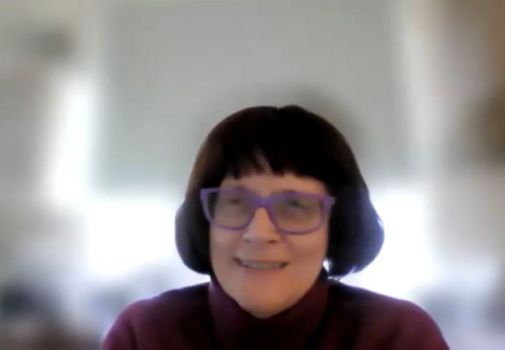 "Interview with Janice Florence" Janice Florence is a performing artist and disability advocate. She originally trained as a Teacher and Librarian. Janice has worked in Education and Libraries for many years and in disability advocacy for 20 years She has worked in Training and Consultation at Arts Access Vic for 12 years. Janice has been involved in theatre, dance and human movement for over 35 years. For 25 years she has been the Artistic Director of Weave Movement Theatre, comprising disabled and non-disabled performers. Weave has produced many devised original works often with respected performing artists as collaborators. She was the inaugural recipient of the Australia Council Awards for Disability Arts-Established Artist in 2019. Interview Summary Janice Florence is a veteran performer and Artistic Director of Weave Movement Theatre, which includes disabled performers. During the interview, Janice reflected on her extensive history with dance, both prior to and after acquiring her disability, highlighting the significance of political and personal themes, as well as the use of humour in her work. She discussed the ongoing challenges in securing accessible rehearsal and performance spaces, along with the complexities of funding and recognition within the Disability Arts scene in Australia. Janice also acknowledged the importance of Disability Arts historically and its potential for challenging societal expectations regarding disability.
"Interview with Janice Florence" Janice Florence is a performing artist and disability advocate. She originally trained as a Teacher and Librarian. Janice has worked in Education and Libraries for many years and in disability advocacy for 20 years She has worked in Training and Consultation at Arts Access Vic for 12 years. Janice has been involved in theatre, dance and human movement for over 35 years. For 25 years she has been the Artistic Director of Weave Movement Theatre, comprising disabled and non-disabled performers. Weave has produced many devised original works often with respected performing artists as collaborators. She was the inaugural recipient of the Australia Council Awards for Disability Arts-Established Artist in 2019. Interview Summary Janice Florence is a veteran performer and Artistic Director of Weave Movement Theatre, which includes disabled performers. During the interview, Janice reflected on her extensive history with dance, both prior to and after acquiring her disability, highlighting the significance of political and personal themes, as well as the use of humour in her work. She discussed the ongoing challenges in securing accessible rehearsal and performance spaces, along with the complexities of funding and recognition within the Disability Arts scene in Australia. Janice also acknowledged the importance of Disability Arts historically and its potential for challenging societal expectations regarding disability. -
“A national Disability Advisory Council is established in 1983” The national Disability Advisory Council (DACA) was established in 1983. Parliamentary information from 26 July that year reports: “Disabled people will form a significant majority on the new body. Announcing this today, the Minister for Social Security, Senator Don Grimes, said the new Disability Advisory Council of Australia represented an important breakthrough for disabled people. For the first time, an Australian Government will be looking to disabled people themselves for advice on government policy and programs affecting them.”
-
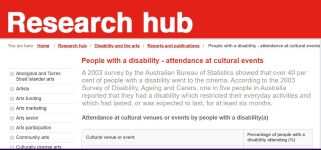 “Australia Council - People with a disability - attendance at cultural events 2008" Australia Council - People with a disability - attendance at cultural events 2008 - reads, in part "A 2003 survey by the Australian Bureau of Statistics showed that over 40 per cent of people with a disability went to the cinema. According to the 2003 Survey of Disability, Ageing and Carers, one in five people in Australia reported that they had a disability which restricted their everyday activities and which had lasted, or was expected to last, for at least six months."
“Australia Council - People with a disability - attendance at cultural events 2008" Australia Council - People with a disability - attendance at cultural events 2008 - reads, in part "A 2003 survey by the Australian Bureau of Statistics showed that over 40 per cent of people with a disability went to the cinema. According to the 2003 Survey of Disability, Ageing and Carers, one in five people in Australia reported that they had a disability which restricted their everyday activities and which had lasted, or was expected to last, for at least six months." -
“The National Disability Insurance Scheme (NDIS) is launched” Following the spike in interest in the mid to late 2000s, significant steps were made towards the development of the National Disability Insurance Scheme (NDIS). It came about as the result of discussions about alternatives of disability support arrangements from 2007 to 2011. This included National Disability Strategy 2010–2020. A trial phrase of the NDIS was launched in 2013, and the scheme was rolled out across the country from July 2016. The 2022 change of government, which saw the Labor party voted in for the first time in nine years, reflected voter concern for climate change and social policies. The new prime minister Anthony Albanese ordered an independent review of the NDIS. The NDIS Review report was published in 2023 and had a number of recommendations, including affording funding based on functional impairment rather than diagnosis, increasing support for children, a requirement that all providers be registered, and state governments providing supports through other services for people who do not meet NDIS criteria.
- Bronwyn Hack
-
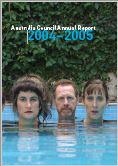 "Australia Council - Annual Report 2004-05" Australia Council Annual Report 2004-2005 - discusses letter from chair of council, letter from CEO, corporate overview, year in review, goals, financial statements, analysis of funding analysis and grants list, including funding for key organisations, new work, presentation and promotion, audience participation (with publication “Access All Areas”), skills and arts development with Arts Access partnering with Helicon Dance to provide 10 workshops in Princess Alexandra hospital Mental Health Service to find out which arts the community members wanted to pursue with a reference group including the University of Queensland and funding for Back to Back theatre to perform Small Metal Objects, in collaboration with sound artist Hugh Covill, animator Rhian Hinkley, director/designer Bruce Gladwin to shed light on, provoke and transform society, and to position artistic creativity as an integral part of the nation’s agenda. Triennial funding to Arts Access Australia (formerly known as Disability in the Arts Disadvantage in the Arts Australia—DADAA)
"Australia Council - Annual Report 2004-05" Australia Council Annual Report 2004-2005 - discusses letter from chair of council, letter from CEO, corporate overview, year in review, goals, financial statements, analysis of funding analysis and grants list, including funding for key organisations, new work, presentation and promotion, audience participation (with publication “Access All Areas”), skills and arts development with Arts Access partnering with Helicon Dance to provide 10 workshops in Princess Alexandra hospital Mental Health Service to find out which arts the community members wanted to pursue with a reference group including the University of Queensland and funding for Back to Back theatre to perform Small Metal Objects, in collaboration with sound artist Hugh Covill, animator Rhian Hinkley, director/designer Bruce Gladwin to shed light on, provoke and transform society, and to position artistic creativity as an integral part of the nation’s agenda. Triennial funding to Arts Access Australia (formerly known as Disability in the Arts Disadvantage in the Arts Australia—DADAA) - No Strings Attached
- No Strings Attached Theatre of Disability
-
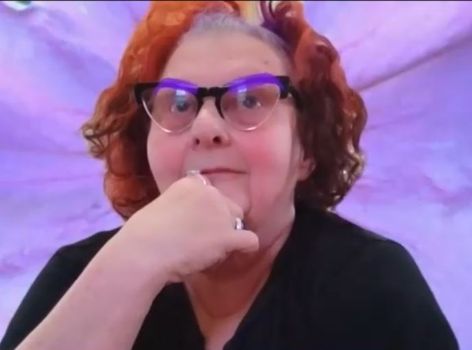 "Interview with Kath Duncan" Kath Duncan is a writer, a director, a provocateur, a visual artist, a comedian, a producer, a journalist, a radio broadcaster and disability advocate. Interview Summary Kath Duncan is an experienced and prominent figure in the disability arts community with a passion for experimental performance arts, having witnessed the beginnings of the disability arts movement in Australia and participated in its evolution. Her art is inherently political, shaped by her unique perspective as a congenital amputee. Kath firmly believes in the inherent creative revolutions and endless inspiration within all impairments. Kath highlights the ongoing struggles within the disability arts sector, including high unemployment rates for disabled individuals, systemic barriers, and the need for disabled leadership in arts organizations. While cherishing the milestones and transformative experiences she's had, Kath calls for significant systemic changes, emphasizing the importance of team playing and collective work to support and grow the disabled artist community.
"Interview with Kath Duncan" Kath Duncan is a writer, a director, a provocateur, a visual artist, a comedian, a producer, a journalist, a radio broadcaster and disability advocate. Interview Summary Kath Duncan is an experienced and prominent figure in the disability arts community with a passion for experimental performance arts, having witnessed the beginnings of the disability arts movement in Australia and participated in its evolution. Her art is inherently political, shaped by her unique perspective as a congenital amputee. Kath firmly believes in the inherent creative revolutions and endless inspiration within all impairments. Kath highlights the ongoing struggles within the disability arts sector, including high unemployment rates for disabled individuals, systemic barriers, and the need for disabled leadership in arts organizations. While cherishing the milestones and transformative experiences she's had, Kath calls for significant systemic changes, emphasizing the importance of team playing and collective work to support and grow the disabled artist community. - Lisa Reid
-
“Creative Australia’s National Arts and Disability Awards are awarded to their inaugural recipients in 2019” Creative Australia’s National Arts and Disability Awards were first awarded to their inaugural recipients in 2019. The three awards go to an emerging or early career artist, and established artist, and someone who’s proven themselves as a leader in disability arts. From 2019 to 2023, the recipients span across artforms and the country.
-
 "Australia Council - Annual Report 2021-22" Australia Council - Annual Report 2021-22 - reads, in part "Following a review of our 2019–21 arts and disability initiatives, the Council expanded support for sustainable careers and the celebration of the achievements of artists with disability. We have committed investment of almost $1 million over 2022–24 through the National Arts and Disability Awards, Mentoring Initiatives, as well as a new fellowship for d/Deaf and Disabled artists. We will also continue our partnership with Arts Access Australia on the awards." and "Safe in Sound is an exploratory concert series for people with disability and their families and supporters. The group offers real-time, in-person interaction, connection and communication through sound as an alternative to listening to recorded music or watching television."
"Australia Council - Annual Report 2021-22" Australia Council - Annual Report 2021-22 - reads, in part "Following a review of our 2019–21 arts and disability initiatives, the Council expanded support for sustainable careers and the celebration of the achievements of artists with disability. We have committed investment of almost $1 million over 2022–24 through the National Arts and Disability Awards, Mentoring Initiatives, as well as a new fellowship for d/Deaf and Disabled artists. We will also continue our partnership with Arts Access Australia on the awards." and "Safe in Sound is an exploratory concert series for people with disability and their families and supporters. The group offers real-time, in-person interaction, connection and communication through sound as an alternative to listening to recorded music or watching television." -
"First ABS Survey of Disability, Ageing and Carers (SDAC)" An ABS Survey of Disability, Ageing and Carers (SDAC) starting in 1981 and made people with disability more 'visible' for services and highlighted differences of experiences.
-
"Juliet London and Des Walsh (1995) Arts & Disability: Report Australia Council: Surry Hills." Juliet London and Des Walsh - Arts & Disability, Australia Council 1995 - Reads, in part "The Australian Bureau of Statistics estimates that 18 per cent of the Australian population has a disability. There is a basic lack of data on participation in the arts by artists with a disability. No figures were available on the number of people with disabilities applying for grants from the Australia Council or from State or Territory arts agencies. The current dearth of statistical information needs to be overcome by systematic and sustained research."
- Gaelle Mellis
